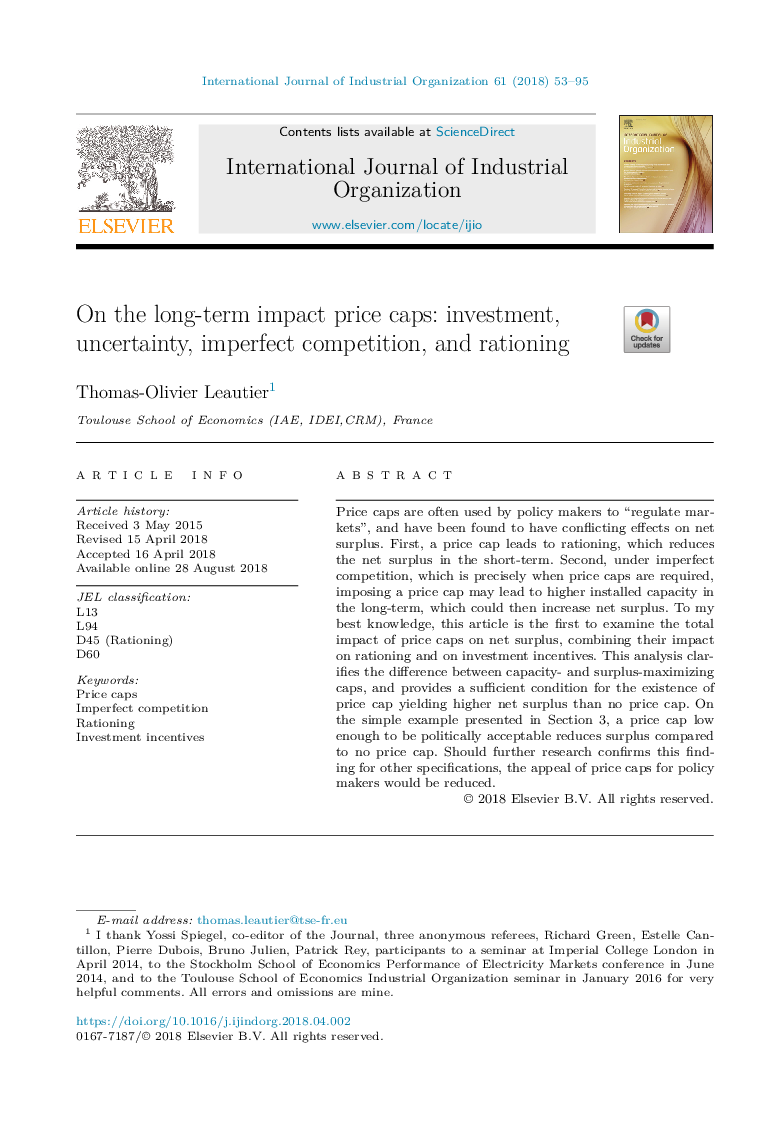| Article ID | Journal | Published Year | Pages | File Type |
|---|---|---|---|---|
| 10226759 | International Journal of Industrial Organization | 2018 | 43 Pages |
Abstract
Price caps are often used by policy makers to “regulate markets”, and have been found to have conflicting effects on net surplus. First, a price cap leads to rationing, which reduces the net surplus in the short-term. Second, under imperfect competition, which is precisely when price caps are required, imposing a price cap may lead to higher installed capacity in the long-term, which could then increase net surplus. To my best knowledge, this article is the first to examine the total impact of price caps on net surplus, combining their impact on rationing and on investment incentives. This analysis clarifies the difference between capacity- and surplus-maximizing caps, and provides a sufficient condition for the existence of price cap yielding higher net surplus than no price cap. On the simple example presented in Section 3, a price cap low enough to be politically acceptable reduces surplus compared to no price cap. Should further research confirms this finding for other specifications, the appeal of price caps for policy makers would be reduced.
Related Topics
Social Sciences and Humanities
Economics, Econometrics and Finance
Economics and Econometrics
Authors
Thomas-Olivier Leautier,
